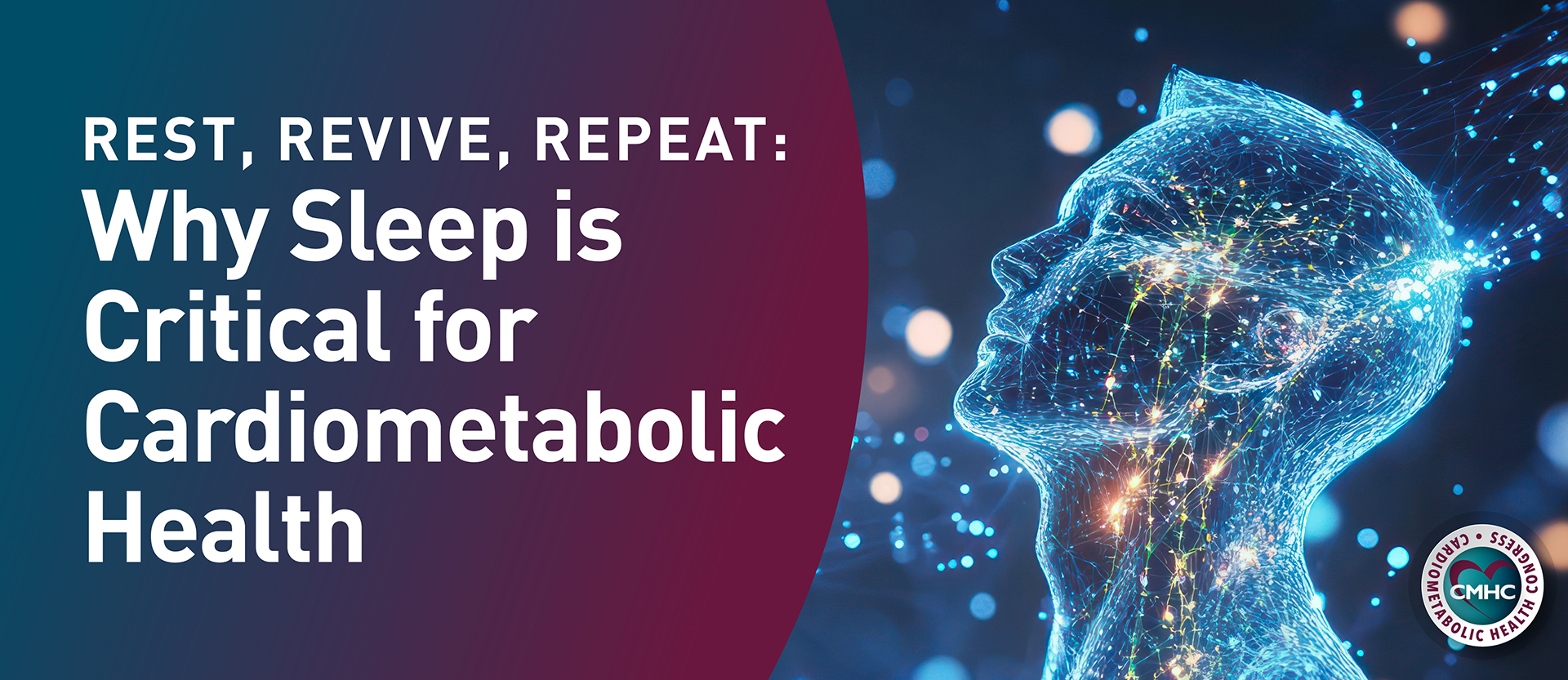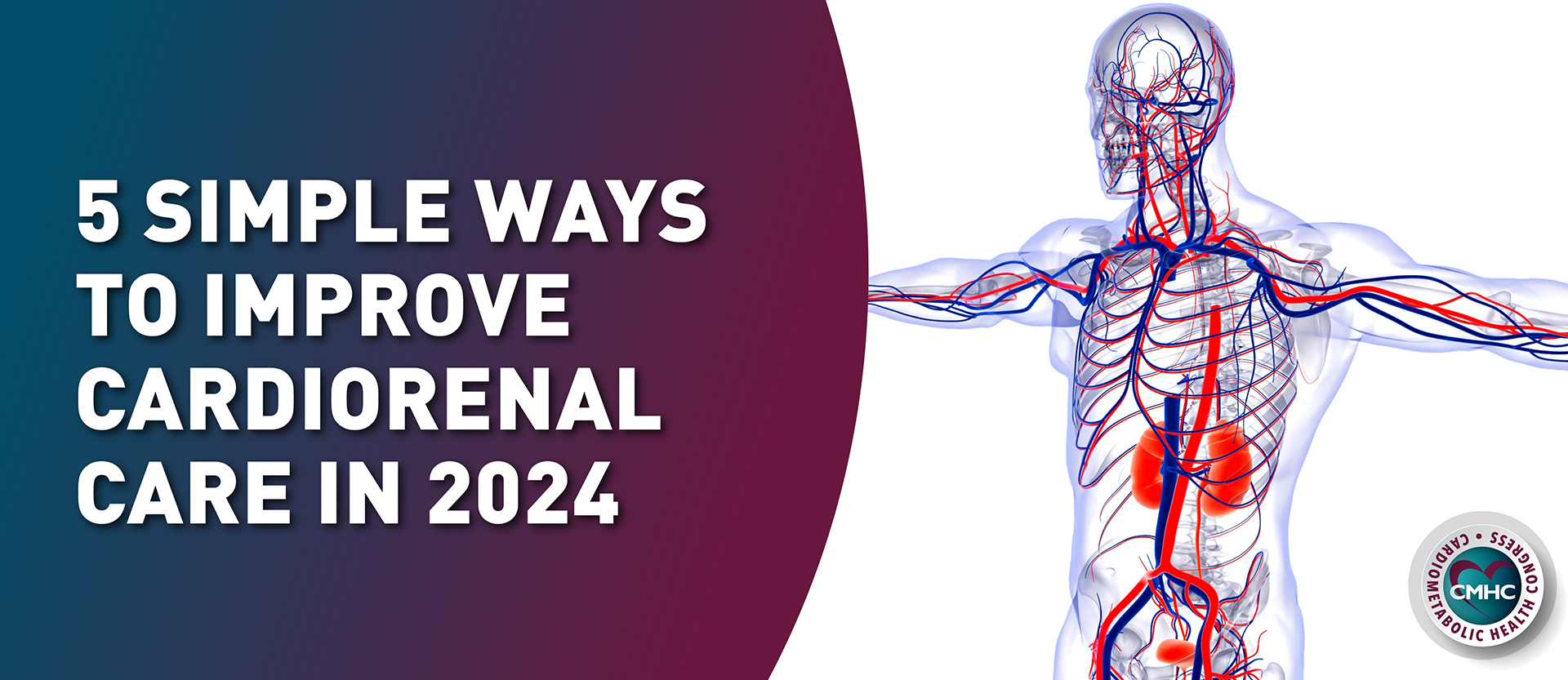As healthcare providers, it’s crucial to understand the profound connection between sleep disorders and cardiometabolic health. In this week’s CMHC Pulse Blog Post, Virend K. Somers, MD, PhD, a consultant in cardiovascular medicine from the Mayo Clinic, discusses how sleep impacts both cardiovascular and metabolic outcomes. Dr. Somers also provides actionable tips on patient evaluations, management strategies, and the role of sleep in maintaining cardiometabolic health.
Understanding Sleep Health: Key Markers
A vital part of assessing patients is understanding what constitutes healthy versus poor sleep. Dr. Somers highlighted some key markers of good sleep:
Waking up without an alarm clock: This suggests the body has completed its needed sleep cycle.
Feeling well-rested: A sense of energy and alertness upon waking is essential. While many recommend 7-8 hours, Dr. Somers notes that individual needs can range from 5 to 9 hours.
Conversely, poor sleep may manifest through:
Snoring or sleep apnea: This can disrupt sleep, often without the patient’s awareness. Asking the spouse about snoring or witnessed apnea is a simple, effective diagnostic tool.
Frequent awakenings: Waking multiple times during the night due to discomfort, pain, or the need to urinate can signal underlying sleep issues.
Daytime sleepiness: Questions such as “Do you fall asleep during the day, driving, or while watching TV?” are critical in uncovering excessive daytime sleepiness—a known marker for cardiovascular risk.
Sleep and Cardiometabolic Risk
Dr. Somers delves into the growing body of research connecting poor sleep with heightened cardiometabolic risk. There is a clear relationship between sleep deprivation and the development of conditions like obesity, diabetes, and hypertension. For example:
Sleep deprivation increases appetite: Studies show that people who are sleep-deprived tend to eat more and store fat in the visceral area, which is more harmful to health than subcutaneous fat.
Impaired glucose tolerance: After just one week of sleep deprivation, insulin sensitivity decreases, pushing patients toward diabetes.
Blood pressure increases: Both daytime and nighttime blood pressure rise with sleep deprivation, particularly in women, heightening cardiovascular risk.
Targeted Questions for Patient Evaluations
Integrating sleep health into routine patient evaluations is essential for better cardiometabolic outcomes. Here are a few targeted questions to consider during consultations:
Do you wake up feeling rested?
Do you often fall asleep during the day or while driving?
Have you ever woken up feeling like you’re choking or gasping for air?
Has your spouse noticed that you snore or stop breathing during sleep?
These simple questions can provide crucial insights into your patient’s sleep quality and overall health.
Managing Sleep Disorders
When it comes to management, the first step is distinguishing between voluntary sleep deprivation and involuntary sleep disorders:
Behavioral interventions: For patients who choose to sleep less due to lifestyle factors (e.g., work, social activities), healthcare providers can offer counseling on sleep hygiene and the importance of adequate sleep.
Cognitive Behavioral Therapy (CBT): For those who wish to sleep more but cannot, CBT for insomnia (CBT-I) has proven effective in helping patients reframe their approach to sleep.
Sleep Apnea Management: While continuous positive airway pressure (CPAP) devices remain the standard for sleep apnea, selecting the right device and ensuring adherence to therapy are crucial for long-term success.
Final Thoughts
Emerging research continues to highlight the vital connection between sleep and cardiometabolic health. For healthcare providers, incorporating targeted sleep assessments into routine patient evaluations, along with offering personalized management strategies, can play a crucial role in reducing the risk of cardiometabolic disorders.
Prioritizing sleep health isn’t just about improving rest—it’s about enhancing overall cardiovascular outcomes.
Start asking your patients about their sleep habits today, and consider sleep interventions as an essential part of cardiometabolic care. Explore our Sleep Education Hub to learn more about the relationship between sleep and cardiometabolic risk.


















